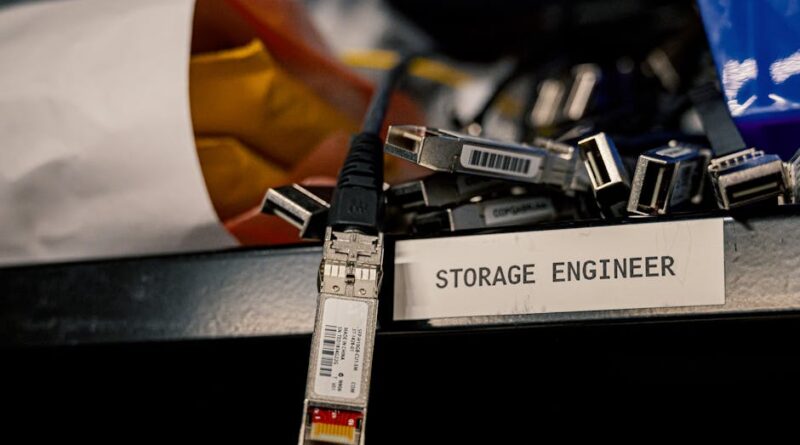Tools to Consider for Server Security
Did you know that nearly 30,000 websites are hacked every day? that’s a staggering number! With the constant threat to online systems, securing servers has never been more crucial. But what tools can you use to protect your servers? Lets dive into the essential tools for server security and how they can help safeguard your data.
Why Is Server Security Important?

Server security protects your data and online presence. Every organization, big or small, relies on servers to store information. Whether it’s customer details, financial records, or sensitive company data, a breach can lead to severe consequences.
Just like locking the doors to your house, securing your server keeps unwanted guests out. A secure server means your business can run smoothly without the fear of losing valuable information.
What Are the Key Tools for Server Security?

Now that we understand the importance of server security, lets look at the tools that can help. Here are some must-have tools to consider:
- Firewalls: Think of a firewall as a security guard for your server. It monitors incoming and outgoing traffic and blocks harmful data.
- Antivirus Software: Just like you need vaccines to stay healthy, servers need antivirus software to fight off malware and viruses.
- Intrusion Detection Systems (IDS): An IDS watches for suspicious activity on your server. it’s like having a security camera that alerts you when something isn’t right.
- Encryption Tools: Encryption keeps your data safe by transforming it into a code. Only authorized users can unlock the information.
- Regular Backups: Backups are like insurance for your data. If something goes wrong, you can restore everything to it’s original state.
How Do Firewalls Enhance Server Security?

Firewalls act as the first line of defense. They filter traffic and block malicious users from accessing your server. You can think of it as a bouncer at a club, only letting in guests who meet specific criteria.
Here are some advantages of using firewalls:
- Control over data traffic
- Protection against unauthorized access
- Ability to set rules for different users
Incorporating a firewall is one of the easiest ways to boost your server security. Their configuration can be complex, but many providers offer user-friendly interfaces to simplify the process.
Why Is Antivirus Software Essential?

Antivirus software is crucial for detecting and removing malicious software. It scans your server for threats, much like how a doctor examines you for signs of illness.
Regular updates keep this software effective against the latest threats. Just like how you wouldn’t skip your flu shot, don’t skip updating your antivirus. Here are some popular antivirus options:
- McAfee
- Norton
- Kaspersky
- Bitdefender
Investing in good antivirus software can save you from potential data loss and downtime.
What Are Intrusion Detection Systems (IDS)?
An Intrusion Detection System (IDS) monitors your network for suspicious activity. If it spots anything strange, it alerts you right away. Think of it as a smoke detector; it warns you before things get out of hand.
There are two main types of IDS:
- Network-based IDS: Monitors traffic on a network.
- Host-based IDS: Looks at specific servers and systems for breaches.
Using an IDS can help you catch threats early and take action before they escalate. it’s like having an early warning system in place.
How Does Encryption Keep Data Safe?
Encryption is a powerful tool for protecting sensitive data. It scrambles your information so that only those with the right key can access it. Imagine sending a secret message that only your friend can read.
Encryption is essential for:
- Data at rest (stored data)
- Data in transit (data being sent over the internet)
By using encryption, you ensure that even if hackers steal your data, they won’t be able to understand it.
Why Are Regular Backups Important?
Regular backups are vital for server security. They ensure that your data is safe and can be restored if something goes wrong. Think of backups as a safety net. If you fall, youll be caught before hitting the ground.
When planning backups, consider these points:
- Frequency: Daily, weekly, or monthly backups depending on data changes.
- Storage location: Use cloud storage or external drives for extra safety.
- Testing: Regularly check backup integrity to ensure they work.
What Are Some Common Misconceptions About Server Security?
Many people have misconceptions about server security. Let’s tackle a few:
- I’m too small to be targeted. Small businesses are often easy targets for cybercriminals.
- Security tools are too expensive. Many tools have free or affordable options that are effective.
- Once I set it up, I’m safe forever. Security requires regular updates and monitoring.
By understanding these misconceptions, you can take proactive steps to enhance your server security.
What Steps Can You Take Right Now?
Ready to improve your server security? Here are some actionable steps:
- Evaluate your current server security tools.
- Implement a solid firewall and antivirus software.
- Consider adding an IDS for additional monitoring.
- Start using encryption for sensitive data.
- Set up a regular backup schedule.
Each step you take will make your server more secure and reduce the risk of a breach.
In Conclusion
Server security is a crucial aspect of running any digital operation. With the right toolslike firewalls, antivirus software, and encryptionyou can safeguard your data effectively. Remember, security is an ongoing process, not a one-time task. So, keep monitoring and updating your strategies.
For more detailed guidance on server security best practices, check out this helpful resource: CSO Online’s Server Security Best Practices.
Taking these steps today can save you from significant headaches tomorrow. don’t wait until it’s too late. Secure your server now!



